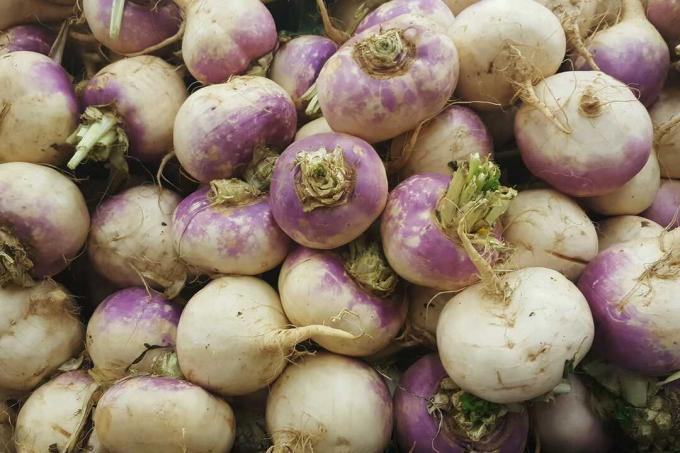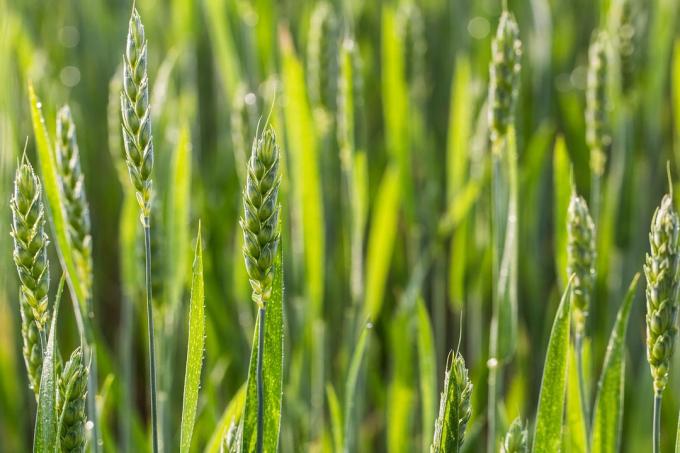
Farmer's rules and lottery days in July often revolve around the forthcoming harvest, but drought and thunderstorms are also discussed. Although these rules are considered uncertain, they are surprisingly often correct.
In a nutshell
- many peasant rules see bad weather in July as a negative sign
- July as one of the most important days on which the sun should preferably shine
- from the end of July, the forecasts relate to winter
- Dog days as the longest period of forecasts in July
Table of contents
- Farmer rules from 1. to 4. July
- From the 8th until 17 July
- Weather wisdom from 20. until 23 July
- From the 25th until 31. July
- frequently asked Questions
Farmer rules from 1. to 4. July
1. July
- "If July starts with dribbles, it will rain for a long time."
According to this farmer's rule, if it rains on the first of July, the weather will continue to be bad. The bad weather usually lasts until the dog days.

2. July
- "Like the weather on the Visitation, so it will be 40 days."
There are several peasant rules that sound similar to the Visitation of Mary. The Lostage at the beginning of July mainly deal with the bad weather. The reason for this is that the ripening season for fruit, grain and vegetables begins at the beginning of July. If there is rain at this time, this has a negative effect and can promote fungal infections or pests, for example.
4. July
On the Fourth of July, which is also Ortisei's commemoration day, there are several farmers' rules about fruit.
These two rules are available on April 4th. July:
- "Rain on St. Ulrich's Day makes the pears prickly-mad."
- "When it thunders on Ulrich's Day, the nuts fall from the tree."
Both rules predict a bad harvest when there is bad weather.
From the 8th until 17 July
Peasant Rules on the 8th July:
- "St. Kilian is the right turnip man.”
- "Sow vetches and turnips on St. Kilian."
- "Kilian, the holy man, employs the first reapers."
The first two farmer's rules have almost fallen into oblivion, since hardly anyone plants beets anymore. The beginning of July is the ideal time to sow turnips.

Tip: Swedes used to be known as poor people's food. In the meantime, the nutritious root vegetables are experiencing a renaissance, as they are not only healthy, but can also be stored very well.
The beginning of July was originally the optimal time for the first hay harvest. Due to the fact that mowing takes place several times a year, the first cut often takes place in May. The reapers used to be important workers because they went from farm to farm and helped with the mowing with the scythe.
10. July
- "Whatever the weather on Seven Brothers' Day, it may remain seven weeks."
The Siebenbrüder is one of the most important Lostage days in July. If it's nice that day, it's supposed to stay nice for the next seven weeks. This time is the most important phase because the grain harvest is due then.
15. July
- "If the division of the apostles is fine, the weather of the seven brothers can go."
According to tradition, the apostles separated on this day to spread the gospel in different directions. This should also bring about a change in the weather. In particular, if there was bad weather on Seven Brothers Day, this should improve from April 15. change July.

17. July
- "Rain on Alexe becomes the old witch."
Like most farmer's rules in early July, this one doesn't bode well if it's still raining.
Weather wisdom from 20. until 23 July
20. July
On 20. July is the feast day of Saint Margareta. The pawn rules partially contradict each other here. On the one hand, bad weather is not welcomed, on the other hand, the rain can have a positive effect.
Rain as a bad sign:
- "If it rains on Margareta, the hay doesn't come home well."
- "To Margarethen Regen, hay and nuts bring no blessing."
- "Rain on Margaret's Day brings much lamentation."
- "Rain on Margaret's Day says good day to hunger."
- Rain as a positive or neutral sign:
- "Margaret's rain will only subside after a month."
- "Against Margareten and Jakoben the strongest thunderstorms rage."
- "If it rains on Margarethentag, much more rain will follow."
- "Margaret rain brings blessings."

Another peasant rule also says that on this day the first pears are to be harvested. In connection with this, the harvest of further fruit, vegetables and grain will soon start.
- "The first pear" brings Margaret', then everywhere the harvest' is concerned."
22. July
- "Mary Magdalena weeps for her Lord, that's why it likes to rain that day."
Shortly before the dog days start, it can often rain again. Another farmer's rule says that at this point the nuts are beginning to ripen and are clearly recognizable.
- "On the day of St. Magdalen you can already see full nuts."
23. July
on the 23rd The Dog Days begin on July 24th and last until the 24th. go august. The dog days are often associated with great and uncomfortable heat. This is good for the harvest, but the heat is an uncomfortable physical strain. If the dog days are characterized by bad weather, then this is a bad sign.
- "Of course Apollinarius has to be if the farmer is to be happy."
- “Dog days bright and clear, signifying a good year. If rain prepares them, the best times will not come.”
- “What the dog days pour, the grape must pay for. „

The last peasant rule relates to the grape harvest. If it rains during the dog days, this has a negative effect on the quality of the grapes.
The dog days are already a preview of winter. Dry dog days predict a cold winter:
- "Hot dog days herald a cold winter."
- "Dog days hot, winter long white."
From the 25th until 31. July
25. July
- "St. Jacob takes away the need, brings the first fruit and fresh bread."
- "When Jakobi comes up, you can cut the rye."
Both peasant rules relate to the harvesting of grain. In the past, the time was eagerly awaited, because the granaries were almost all empty. As a result, there was less and less flour from which to bake bread.
The farmers' rules also see bad weather on this day as correspondingly problematic. This was not good for the grain harvest and the humidity can encourage mold, for example.
- "When it rains at Jakobi, it rains in the women's baking trough."
- "Three days before Jakobi rain does not bring a good harvest blessing."

The grain harvest also means that autumn is not far away. In connection with this, the migratory birds begin to prepare for the journey. On the 25th there will be a July also a farmer's rule: "If Jakobus is there, the storks will soon leave."
26. July
- "Anna warm and dry makes the peasants rejoice."
As July progresses, good weather is more important so that the harvest can be brought in safely.
- "By St. Ann the chilly mornings begin."
This pawn rule is probably one of the few rules that are reliable. At the end of July, the nights and the mornings that follow become increasingly cooler.
31. July
- "The way Ignaz turns out, it will be next January."
From the middle of the year there are increasingly rules that go far into the future. The dog days already indicate the weather in winter. Ignaz is a Lostag for next January because what the weather is like that day is supposed to be mostly next January.
Tip: Check the pawn rules for correctness yourself. Just the 31st July is a good time to note the weather for that day and to check in January whether the weather is really the same as Lostag predicts.
frequently asked Questions
Due to the fact that the pawn rules are rather imprecise in content and there are sometimes conflicting rules for the same day, there is a high probability that they are correct. You have so much leeway that you can always find rules that may still apply today.
Even if the pawn rules were not always sure, they were a point of reference for the upcoming work. If the weather was bad at the beginning of July, the farmers used to take little time with the harvest and used every available day. If there was a sustained period of good weather, there was a high probability that it would continue. As a result, you could take a little more time with the grain harvest, which means that the grain is also completely ripe or ripe. was dry.
The pawn rules and lottery dates go back to antiquity. They used to be the only way to make weather forecasts. Even then, they were considered unreliable and differed from region to region, which partly explains the contradictory rules for the same day. Only since there have been continuous weather records has it been possible to check how high the level of truth is. Referring to the origin of the respective rules, the hit rate is very high.

